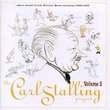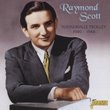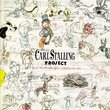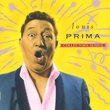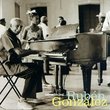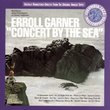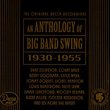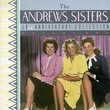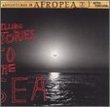| All Artists: Raymond Scott Title: The Music of Raymond Scott / Reckless Nights and Turkish Twilights Members Wishing: 0 Total Copies: 0 Label: Sony Original Release Date: 11/10/1992 Release Date: 11/10/1992 Album Type: Soundtrack Genres: Jazz, Special Interest, Pop, Rock, Soundtracks, Children's Music Styles: Swing Jazz, Comedy & Spoken Word, Marches, Easy Listening Number of Discs: 1 SwapaCD Credits: 1 UPC: 074645302829 |
Search - Raymond Scott :: The Music of Raymond Scott / Reckless Nights and Turkish Twilights
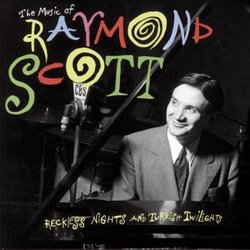 | Raymond Scott The Music of Raymond Scott / Reckless Nights and Turkish Twilights Genres: Jazz, Special Interest, Pop, Rock, Soundtracks, Children's Music
Prewar gems from a long-neglected master. Scott's career as composer, bandleader, and electronic-music pioneer is just beginning to be rediscovered. Here he mixes swing jazz with classical forms, exotica (long before there... more » |
Larger Image |
CD DetailsSynopsis
Amazon.com Prewar gems from a long-neglected master. Scott's career as composer, bandleader, and electronic-music pioneer is just beginning to be rediscovered. Here he mixes swing jazz with classical forms, exotica (long before there even was such a thing), and his own hyperactive melodies to create a timeless sound. Many of the bouncy tunes are recognizable from their constant use in cartoon soundtracks over the years: the classic "Powerhouse," a jittery mix of an edgy scherzo and a relentless march (as well as a favorite of Looney Toons composer Carl Stalling); the jaunty "The Toy Trumpet"; and the dizzying "Dinner Music for a Pack of Hungry Cannibals." Scott's original recordings with his Quintette (which, strangely enough, consisted of six musicians) are a delight, and the invention and energy never let up. --Heidi MacDonald Similar CDsSimilarly Requested CDs
|
CD ReviewsThe cartoons of my childhood only whetted my appetite for th Peter J. Ward | Lewisburg, WV. USA | 09/04/2008 (5 out of 5 stars) "Honestly, I purchased this CD after someone played "Powerhouse" and I recognized the song from many of the classic Warner Brothers' cartoons of the 40's and 50's. I had heard this piece many times but never appreciated how fantastic it was without animation accompanying it. I purchased this CD and it just blows my mind that so few people know anything about Raymond Scott. All the pieces are interesting but the amazing feel of his music comes from how well he paints a picture through sound. "Tobacco Auctioneer" and "At an Arabian House Party" both floored me with the musical moods that he arranged.
Scott also stands out as a great example of closely arranged and innovative jazz. While he allowed some of the musicians to improvise during the sessions, he set the arrangement in stone once he had it "perfected", so some people may even disagree with classifying his music as jazz. Jazz or not, this music is more than a soundtrack to some great cartoons, it stands on its own as an unappreciated direction that instrucmental music took during the early 20th century. " |

 Track Listings (23) - Disc #1
Track Listings (23) - Disc #1
